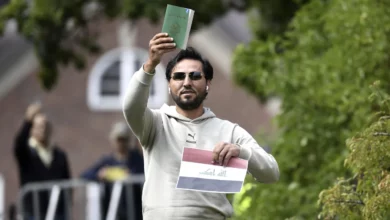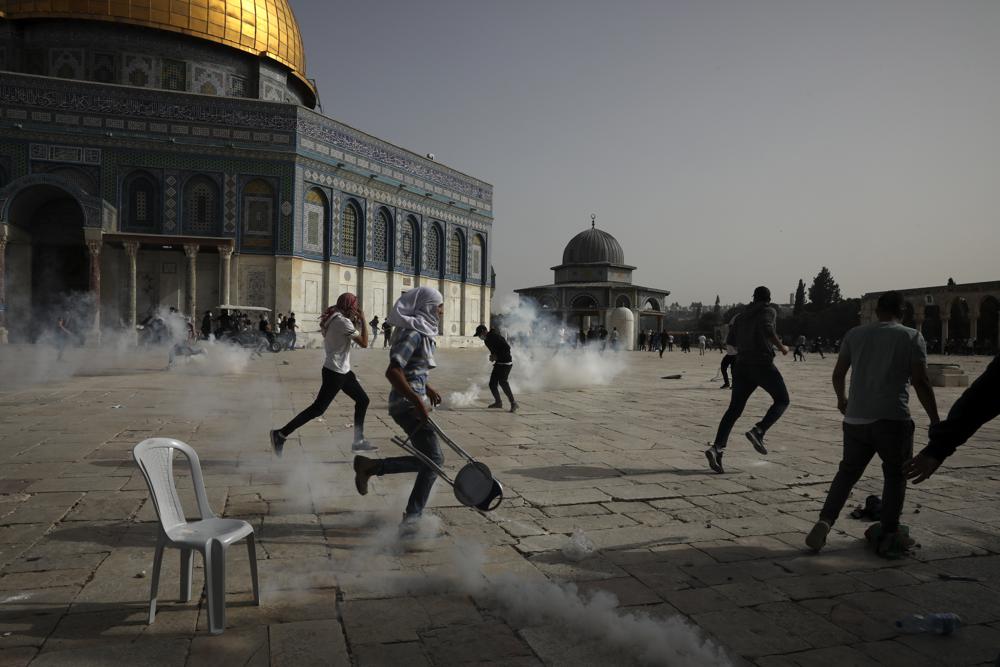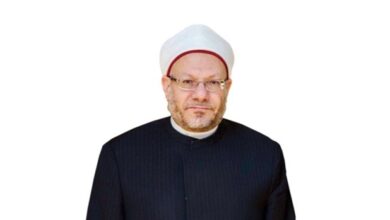Leaders of liberal political parties from across the globe gathered in Cairo over the weekend to call for the peaceful resolution of conflicts between some Muslim countries and the West and to emphasize that Islam and liberalism are not mutually exclusive.
“We believe in building relations and encouraging people to change the world we live in through political dialogue,” said John Lord Alderdice, president of Liberal International (LI), an umbrella grouping of more than 100 liberal political parties and organizations from a multiplicity of countries.
In his opening remarks before LI’s 56th annual congress, Alderdice — himself a member of the British Liberal Democratic Party — stressed that liberal political systems could not be imposed by external powers.
“Liberals must develop their liberal principles according to their contexts,” explained Alderdice, who has led the 61-year-old federation for the past eight years. “Liberalism should have different colorings and different flavors.”
The LI congress, the third in a Muslim country since 2003, comes at a time when Islamic-Western relations are still recovering from the fallout of the 9/11 attacks in 2001 and the subsequent US-led wars in Afghanistan and Iraq.
“We understand perfectly the implications of holding this congress in Egypt during a time of mutual misunderstanding between the Muslim world and the West,” said Osama el-Ghazali Harb, congress host and head of the Democratic Front Party, the most recently established of Egypt’s liberal parties.
Harb went on to say that liberalism provided the intellectual and theoretical framework with which to avoid potentially bloody confrontations. The same point was made by Alderdice, who expressed concern that “security measures” — rather than dialogue — had become the overriding focus of Western-Muslim relations.
Aside from accepting a dinner invitation from former presidential candidate and Al-Ghad Party founder Ayman Nour, who recently spent four years in jail on charges widely seen as politically motivated, LI delegates paid little more than lip service to notions of democracy and political reform in the Middle East.
Distancing themselves from earlier policies aimed at pressuring Arab states to “democratize,” European liberal leaders at the congress opted instead for a “gradualist” approach to political transformation. “Democracy isn’t about elections, even if they are fair and free,” said Alderdice. “It’s about the rule of law and respecting the outcomes of elections.”
“We expressed solidarity with opposition voices in the Arab world,” one Scandinavian attendee told Al-Masry Al-Youm English Edition on condition of anonymity. “But our initial objective is to engage governments of the region in debate rather than alienating them.”
High-ranking Egyptian officials, meanwhile, appeared pleased by the calls for dialogue.
“Liberal values are based on the importance of dialogue and on embracing and respecting ‘the other,’ regardless of his cultural, religious or intellectual background,” said Moufid Shehab, Egyptian Minister of Legal and Parliamentary Affairs, in his opening address.
Shehab added that Liberalism, which he defined as a “culture-specific” idea, is the venue whereby “calls for hatred and the ‘clash of civilizations’ can be confronted.” The minister went on to remind the audience that his government remained committed to the quest for democracy and political reform “despite the [current] hard times of extremism and narrow-mindedness.”
Some attendees challenged the notion that democracy and the rule of law were “Western concepts” to be opposed.
“I consider it an insult that some Western scholars and Muslim autocrats argue that Islam and democracy are inherently incompatible,” said Anwar Ibrahim, former Deputy Prime Minister of Malaysia and current opposition leader.
Ibrahim added that, while Arabs and Muslims were outraged by incidents of torture by US servicemen in Iraq’s notorious Abu Gharib Prison in 2004, similar attention must also be given to the abuse of prisoners in the Muslim world.
“We must condemn the excesses in our own backyards,” said Ibrahim, who himself was sentenced to jail for nine years in 2000 for alleged sodomy — a charge his supporters believe was intended to tarnish his reputation.
He strongly dismissed the policy of perpetuating dictatorships in the Muslim world on the grounds that elections could potentially bring religious fundamentalists into power.
“In Indonesia, the government allowed all parties to participate, even the extremists — but voters elected a moderate leader,” Ibrahim said, referring to last July’s presidential elections in which President Susilo Bambang Yudhoyono’s secular Democratic Party won a landslide victory.
“There is only one form of democracy,” said Ismail Jussa, chairman of Tanzania’s Civic United Front. According to Jussa, the contemporary notion of “African democracy” is little more than a surreptitious means of sustaining authoritarian political structures.




